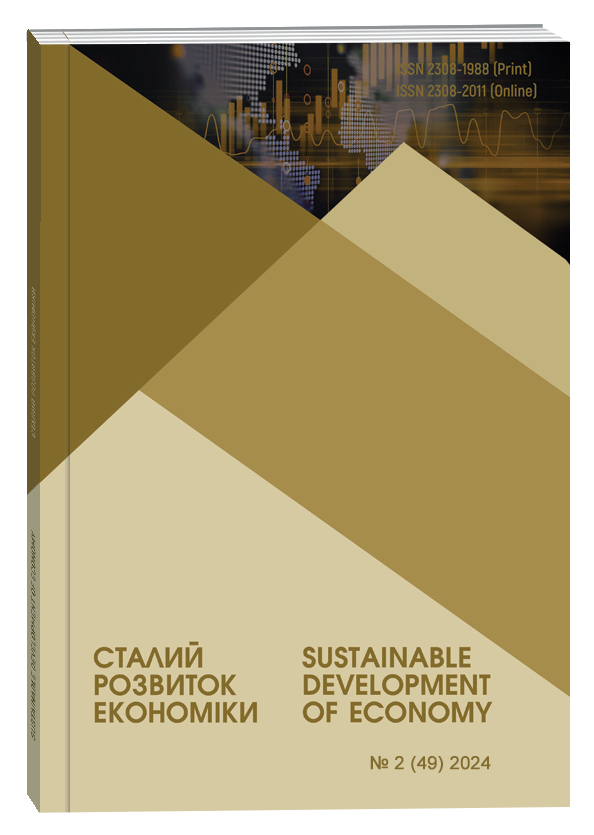TAX INCENTIVES FOR ENERGY EFFICIENCY AS PART OF THE STATE'S FINANCIAL POLICY
Abstract
The article determines role of tax instruments in the system of stimulating energy efficiency investments. It shows advantages of tax incentives in comparison with other types of incentives. The author analyzes experience of European countries in using tax incentives to support investments in energy efficiency projects. The advantages and disadvantages of this approach are highlighted, particularly the importance of simple administration and adequacy of preferential taxation measures. The author proposes a classification of tax instruments to optimize the distribution of revenues and promote the interests of different parties. The provision of tax incentives is an important tool for government regulation of the economy, particularly in the realm of energy efficiency. These incentives stimulate investment in projects aimed at improving energy efficiency, thereby reducing energy consumption, emissions, and operational costs for businesses. Additionally, they can foster innovation as companies investing in energy efficiency often introduce new technologies and methods, enhancing productivity. However, there are drawbacks to tax incentives, including increased administrative complexity and the potential for unequal application, which can lead to corruption and unfair distribution of financial resources. Moreover, providing tax incentives may reduce government revenue, complicating the funding of social and infrastructure programs. To ensure effective use of tax incentives, it is essential to make them transparent, targeted, and aligned with specific economic development goals. Moreover, the availability of complementary policies and programs can enhance the effectiveness of tax incentives. For instance, energy efficiency standards, public awareness campaigns, and financial assistance programs can complement tax incentives by providing additional support and resources for energy efficiency initiatives. Overall, while tax incentives can be a valuable tool for promoting energy efficiency, they should be part of a comprehensive policy framework that includes supportive regulations, programs, and initiatives. By addressing these various factors, policymakers can maximize the impact of tax incentives and accelerate progress towards energy efficiency and sustainability goals.
References
Copenhagen Economics. URL: http://www.copenhageneconomics.com/Website/Publications.aspx
Directive 2022/31/EU of the European Parliament and of the Council. URL: http://eur-lex.europa.eu/LexUriServ/LexUriServ.do?uri=OJ:L:2010:153:0013:0035:EN:PDF
Global Energy Statistical Yearbook 2023. URL: https://yearbook.enerdata.net/total-energy/world-energy-intensity-gdp-data.html
Joseph E. Stiglitz Principal and Agent URL: https://www0.gsb.columbia.edu/faculty/jstiglitz/download/papers/PrincipalandAgent.pdf
UNECE Statistical Database URL: http://w3.unece.org/PXWeb2015/pxweb/en/STAT/STAT__10CountryOverviews/?rxid=f3849508-eb5b-4755-bcc6-969b9fc538c1
World Bank URL: http://data.worldbank.org/country/ukraine
Мединська Т.В., Черевата Р.Ю. Податкове стимулювання розвитку R&D в Україні та Польщі. Суспільні трансформації і безпека: людина, держава, соціум: матеріали Всеукраїнської науково-практичної конференції. Львів : Львівський інститут МАУП, 2022. С. 84–88.
Проект USAID «Муніципальна енергетична реформа в Україні». URL: https://decentralization.gov.ua/energoefect/enerhomenedzhment?page=2
Copenhagen Economics. Available at: http://www.copenhageneconomics.com/ Website/Publications.aspx
Directive 2022/31/EU of the European Parliament and of the Council. Available at: http://eur-lex.europa.eu/LexUriServ/LexUriServ.do?uri=OJ:L:2010:153:0013:0035:EN:PDF
Global Energy Statistical Yearbook 2023. Available at: https://yearbook.enerdata.net/total-energy/world-energy-intensity-gdp-data.html
Joseph E. Stiglitz Principal and Agent. Available at: https://www0.gsb.columbia.edu/faculty/jstiglitz/download/papers/PrincipalandAgent.pdf
UNECE Statistical Database. Available at: http://w3.unece.org/PXWeb2015/pxweb/en/STAT/STAT__10CountryOverviews/?rxid=f3849508-eb5b-4755-bcc6-969b9fc538c1
World Bank. Available at: http://data.worldbank.org/country/ukraine
Medynska T. V., Cherevata R. Y. Tax incentives for the development of R&D in Ukraine and Poland. Social transformations and security: man, state, society: materials of the All-Ukrainian scientific and practical conference. Lviv: Lviv Institute of IAPM: Lviv. IAPM, 2022. pp. 84–88.
USAID Municipal Energy Reform Project in Ukraine. Available at: https://decentralization.gov.ua/energoefect/enerhomenedzhment?page=2


